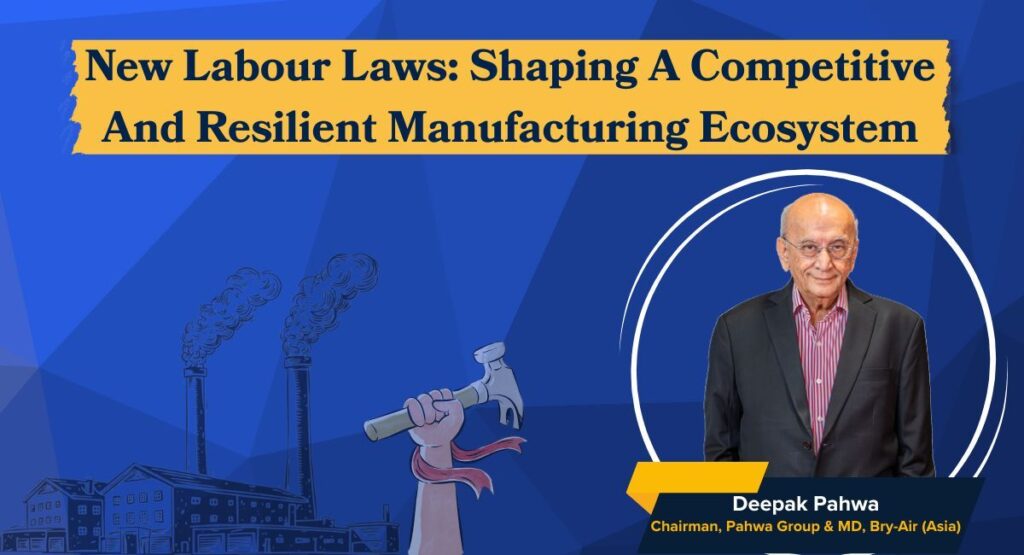According to the Deloitte India Talent Outlook 2025 survey, only 12% of employees will be promoted in 2025. With such slim margins, the importance of promotion and merit needed for the same has only increased.
Tides in India have turned when it comes to promotions. Where the companies once sought to elevate their more experienced employees, merit has now become the key reason behind promotions and much more.
While the worth of experience remains as true as ever, companies have now started to delve deeper and focus more on the skills and merit shown by their employees, no matter their tenure. With rapidly changing technologies and tools, though, experience has stopped being the only thing that might make one worker stand out among the rest.
The “merit” in “merit-based” promotions
Promotions are considered tangible proof of a person’s growth in their career and, as such, are not decisions to be made lightly. When it comes to evaluating a candidate for a merit-based promotion, there are several factors that are often considered crucial.
Consistent high performance and achievement of targets
An employee’s merit can often be measured through their results. A worker whose performance remains high and produces quality output stands out among their peers and highlights why they deserve a promotion.
Working towards the set targets by efficiently utilising skills makes any employee stand out. The consistency in this gives them an edge over even those who might be more experienced and part of a company for a longer period.
Demonstrated leadership and problem-solving abilities
When working in a team and striving for a promotion, an employee must demonstrate what it means to be a leader. Gaining a higher position in any company is not just about recognising one’s hard work. It also comes with the expectation that, as a senior member of the team, the employee will help those working under them.
Can they solve the problems that might come the team’s way in an organised way? Can they act as a leader in a time of crisis? While experience can certainly help make these tasks easier, companies are becoming more willing to give younger employees a chance at it, should they display the potential for the same.
Continuous upskilling and adaptability to new challenges
In today’s rapidly changing world, employees who are constantly upskilling gain an upper hand in securing promotions. The continuous desire to learn showcases a drive to learn and grow. It also highlights an employee’s capability of remaining in step with the changes in the industry.
While experience is often considered a boon when tackling challenges in any company, the new nature of these hurdles means that adaptability has become more important than ever. When faced with a problem that is new to young and experienced employees alike, it is not about what one has done in the past, but how willing they are to grasp the novelty of the situation and act accordingly.
Rising meritocracy as seen in real life
Meritocracy refers to a system where one’s capabilities are what matter the most. In today’s world, even salary hikes and growth opportunities are often provided to those who showcase merit. This trend is something that both employers and employees have started to notice.
As per Reeracoen’s Unlocking Success in 2025: Navigating Pay Structures & Flexible Work Arrangement report, 62.8% of employees anticipate merit-based increments. A significant number of the participants voiced that increments and bonuses should be based on performance.
Companies within India have also started to embrace merit-based promotions and hikes as incentives to keep employees engaged and motivated.
Tata Consultancy Services (TCS), one of India’s leading tech giants, chose to promote 1.1 lakh of its employees based on merit. The promotions were made in light of the company’s decision to delay its salary increments.
Milind Lakkad, Executive Vice President and Chief Human Resources Officer (CHRO) at TCS, announced that the promotions would be made despite any increase in salary in a bid to show the company’s recognition for its talent and retain them within the organisation.
Similarly, Infosys decided to increase the salary of its employees in February 2025 based on merit and not tenure. The top performers in the company with the “outstanding” rating saw an increase of 10-12% in their salary, which was considerably higher than the company-wide average increase of 5-8%.
Employees who “met expectations” were given a 5-7% hike, while those whose performance was deemed “commendable” had their salaries increased by 7-10%. In contrast, the employees whose performance seemed to need improvement saw no increase in their compensation.
The moves made by both companies strongly indicate how companies are shifting to a merit-based reward system by the day. Whether it be promotion or salary increment, merit has become the widely used parameter for evaluation.
The pros of merit-based promotions
Today, both employers and employees prefer the shift to meritocracy. As one might expect, the reason behind this change lies in the numerous benefits that merit-based promotions can provide.
- Enhanced Employee Motivation: By linking promotions to performance, a company fosters a culture of excellence. It encourages employees to excel in their roles and work towards upskilling and reskilling in order to remain in the running for elevation.
- Attraction and Retention of Talent: Using a merit-based system for promotion showcases existing and future employees that they will be valued for their skills. Through transparent and fair promotion practices, a company can attract top talent who want to grow to their full potential and retain the existing employees.
- Organisational Agility: Promoting individuals based on merit also means that a company’s leadership is made up of individuals skilled in their respective fields. The preference for skills over age or gender allows for a more diverse management team, fostering new opportunities and innovation.
With a shift towards merit-based promotions, companies in India are shifting towards a culture that prioritises skills above all. As such, continuous learning, reskilling, and upskilling are becoming intrinsic parts of companies that aim to attract and retain top talent.
The merit-based system also provides employees with a tangible way to measure their growth and anticipate their promotion. Those who want to rise high fast can forge a path through determination and learning, helping their company and peers grow alongside them.





